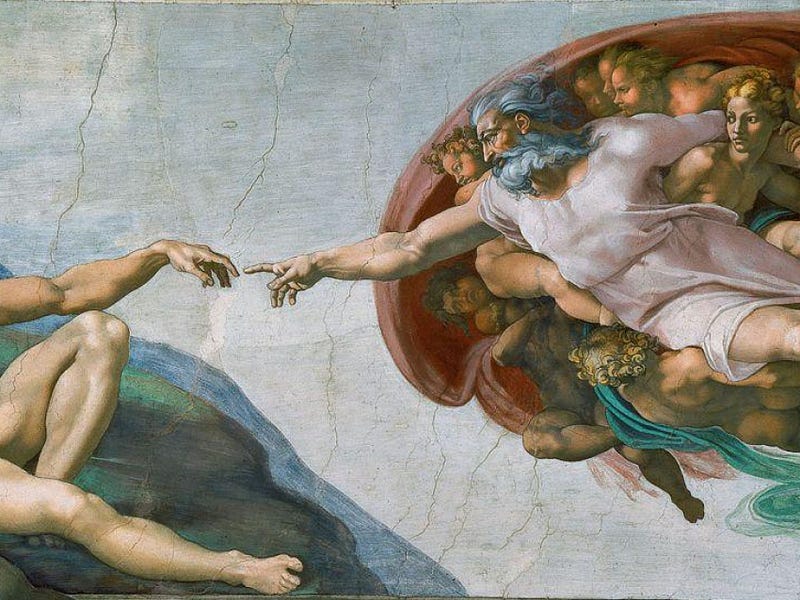The 7 Day Creative Process
In studying the creative process, I look for models and insights everywhere. This is one you’re likely familiar with but hadn’t thought about this way before.
The first chapter of Genesis tell the oldest story of creation. And the first verse of the second chapter tells the complete story.

Over six days, God created the world. “And on the seventh day God finished His work which He had made; and He rested on the seventh day from all His work which He had made. Then God blessed the seventh day and made it holy, because on it he rested from all the work of creating that he had done.”
For the atheists and skeptics out there, let’s play along and assume this is a tale of folklore and allegory. It’s not truth in the sense that it’s history, it’s truth in that there is something to learn from it.
If the biblical God is all-knowing and all-powerful, there is no limit. The seventh day could have been spent building buildings or creating snakes with feet, flying pigs, or dementors. And still, the seventh day was for rest.
God’s creative process includes a day of rest.
What can we learn from this as it relates to the creative process?
A day of rest is key to any process. This 1:6 ratio is a good lesson. It works in relation to exercise (taking a day off each week for muscles to recover), to farming (one year out of seven should be used to turn the soil and let it rest), to working (Stefan Sagmeister famously takes a gap year every 7 to divide up his retirement throughout his life) and so many other things.
Rest is important to create space between your attention and the work. That space– often called gap time or perspective– allows for two things: humility and creativity.
Rest creates humility because it reminds us that there are other important things in our lives besides work. The closer our attention gets to work, the more it feels like that is the entire world and everything that matters.
Rest creates creativity. Historically, the most innovation happens when this is part of the process– Archimedes in the Bathtub, Newton under the apple tree, Fleming coming back to his lab after vacation, DeMestral on a walk with his dog invents velcro.
Here’s a way to think about it. Your brain is carrying a lot of information when it does deep work. Its hands are full with assumptions, information, process, and ideas, all stacked high. There are new creations waiting in that pile, but the connections aren’t clear. Taking a break is like putting all of that (mental) load down before picking it up again. But when you go back to pick it up, you’re able to rearrange items and lift more efficiently. Without that break, you’re just piling and piling until it gets so high and overwhelming that you either feel stuck, unable to take a break, or burned out.
The biggest challenge is that integrating a break into our creative process feels counter-productive. It feels wasteful to not work all of the time. But taking into consideration the centuries of learning and thinking about mastering the human brain and the world, I’ll stand on those shoulders and believe that the day of rest is not only good for our work, but necessary.
Caveday is a company aimed at improving your relationship to work. We write regular posts on Medium and send out monthly Newsletters with productivity tips, life hacks, and recommendations. Sign up for the mailing list here.
Or sign up for Jake Kahana’s personal emails, called “The Email Refrigerator” here.
